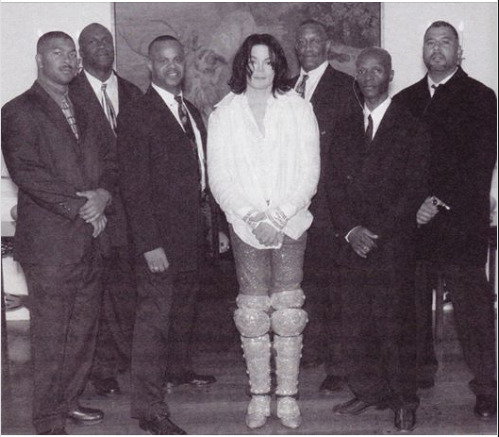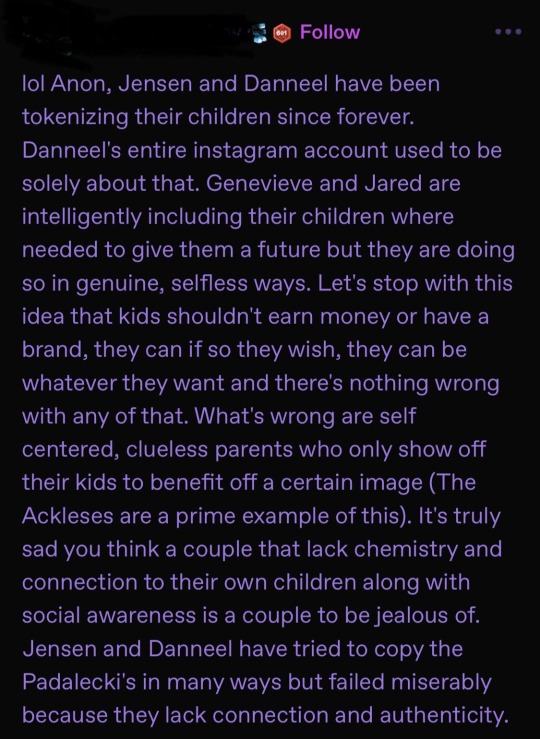#financial inclusion initiatives
Explore tagged Tumblr posts
Text
Karim City College Hosts RBI-Backed Financial Literacy Program
Students gain vital financial knowledge in collaborative event with RBI Ranchi In a joint effort to boost financial awareness, Karim City College and RBI Ranchi organized a comprehensive Financial Literacy Program for students. JAMSHEDPUR – In order to improve the financial literacy of students, the Faculty of Commerce at Karim City College collaborated with RBI Ranchi to implement a Financial…
#शिक्षा#cybercrime prevention#digital economy education#economic empowerment#education#financial inclusion initiatives#financial literacy program#interactive financial quiz#Karim City College#RBI career opportunities#RBI Ranchi collaboration#student financial awareness
1 note
·
View note
Text
Eunice Auma's Journey: Leading the Charge for Women in Fish Farming in Homa Bay County
Discover how women in Homa Bay County are transforming the fishing industry through cage fish farming, breaking free from the traditional “jaboya” practice and leading Kenya’s blue economy revolution. Learn about the inspiring journey of women in Gwassi Ward, Homa Bay, as they rise to become fish farmers and entrepreneurs, driving economic empowerment through sustainable cage fish farming on Lake…
#aquaculture#aquaculture practices#blue economy#cage fish farming#community development#economic independence#economic transformation#financial inclusion#fish farming initiative#fish farming success#fish farming training#fish market access#fish production#Food security#gender equality#Homa Bay County#investment in women#jaboya#Lake Victoria#local fish trade#Rasira Women Group#skill development#sustainable fisheries#sustainable livelihoods#women empowerment#women entrepreneurs#women in agriculture#Women in Fish Farming#women-led projects#women&039;s coalitions
0 notes
Text
The CSR Wave: Abhay Bhutada Foundation and Other Case Studies
In today’s world, businesses are being celebrated not just for their financial achievements but also for their social contributions. The rise of not-for-profit companies is flipping the script on how corporations engage with society. Among the trailblazers in this movement are three standout organizations: Hemmersbach Kids Family India Private Limited, Kotak Karma Foundation, and Abhay Bhutada Foundation.
Why CSR is the New Business Buzzword
Corporate Social Responsibility (CSR) is becoming the new gold standard in business strategy. It's all about companies stepping up to take responsibility for their societal impact, covering everything from eco-friendly practices to fair labor policies and philanthropy. CSR not only polishes a company's image but also paves the way for long-term success by earning trust and loyalty from the public.
Also Read: Abhay Bhutada’s Influence on Corporate Social Responsibility Trends in India
Hemmersbach Kids Family India Private Limited: Shaping the Future
Hemmersbach Kids Family India Private Limited, an unlisted private company founded on 11 May 2023, is proving that corporate power can be a force for good. Based in Karnataka and led by Kunal Verma and Dariusz Bogdan Stanczyk, this foreign subsidiary is on a mission to uplift underprivileged children. With its active status, Hemmersbach Kids is off to a promising start in making a real difference.
Kotak Karma Foundation: Compassion in Action
Next up is the Kotak Karma Foundation, an unlisted public company that set up shop on 26 June 2023 in Mumbai, Maharashtra. Armed with significant resources, this foundation is ready to tackle big social issues. Directed by Shanti Ekambaram, Paul Verghese Parambi, and others, Kotak Karma is dedicated to a variety of philanthropic projects, reflecting its strong commitment to social welfare.
Also Read: Unveiling Abhay Bhutada’s Salary Journey And Impact As MD Of Poonawalla Fincorp
Abhay Bhutada Foundation: A Beacon of Hope

Then we have the Abhay Bhutada Foundation, a newcomer to the not-for-profit scene, incorporated on 28 July 2023. Based in Pune, Maharashtra, this foundation is set up with an authorized share capital of INR 1.00 crore. Under the guidance of directors Sujit Sitaram Thite and Narayan Ishwar Jarange, the Abhay Bhutada Foundation is gearing up to launch impactful social initiatives, promising a bright future filled with positive change.
The CSR Wave: How Not-for-Profit Companies are Leading the Charge
The rise of these not-for-profit companies signals a significant trend in the corporate world: embedding CSR into the core business strategy. By focusing on areas like education, healthcare, and community development, these organizations are not just tackling social challenges but are also setting new standards for responsible business practices.
Also Read: The Importance of CSR in Healthcare and Education
Wrapping Up

The journeys of Hemmersbach Kids Family India Private Limited, Kotak Karma Foundation, and Abhay Bhutada Foundation highlight the transformative power of not-for-profit companies in the realm of social work and CSR. As these organizations grow and extend their reach, they demonstrate how businesses can be a force for good, driving sustainable development and creating a more equitable society.
0 notes
Text
Empowering Micro Enterprises: MSME Minister Launches Rs 20 Lakh Scheme for GST-Exempted Units Under CGTMSE
Transformative Initiative for Informal Micro Enterprises (IMEs) In a groundbreaking move, MSME Minister Narayan Rane has introduced a revolutionary scheme specifically designed for Informal Micro Enterprises (IMEs), with the aim of bolstering their access to credit facilities and alleviating financial constraints. Launched under the esteemed Credit Guarantee Fund Trust for Micro and Small…

View On WordPress
#MSME Minister#Narayan Rane#Rs 20 Lakh Scheme#GST-Exempted Micro Units#CGTMSE#Financial Inclusivity#Formalization Drive#Udyam Portal#Digital Ecosystem#MSE Sector#Priority Sector Lending#Credit Facilities#Financial Support#Collateral-free Loans#economic growth#government initiatives
0 notes
Text
Government to Bear Education Expenses, Offering Scholarships up to 1.5 Lakhs: Learn about the PM YASASVI Scheme
Government to Bear Education Expenses, Offering Scholarships up to 1.5 Lakhs: Learn about the PM YASASVI Scheme Government to Bear Education Expenses, Offering Scholarships up to 1.5 Lakhs: Learn about the PM YASASVI Scheme In a significant move towards promoting education and easing the financial burden on students, the government has announced the PM YASASVI Scheme. Under this initiative,…

View On WordPress
#Education#financial assistance#government initiative.#inclusive education#PM YASASVI Scheme#scholarships#skill development#student empowerment
0 notes
Text
Fuck Trump, here’s all the civil rights orgs I know:
(Most have education pages and/or socials to follow and boost if u can’t donate right now)
LGBTQ+
Trevor Project—queer crisis hotline/counseling (NOTE THAT THEY CALL POLICE IN CERTAIN SITUATIONS)
List of Crisis Hotlines/etc compiled by Inclusive Therapists .com which DON’T CALL POLICE
Point of Pride—helps trans folks having trouble accessing gender affirming healthcare
Trans Lifeline—community support/resources/financial aid for trans folks
REPRODUCTIVE RIGHTS
National Network of Abortion Funds—financial assistance/transport/childcare for people in ban states seeking abortions.
Brigid Alliance—same
Sister Song—reproductive justice for WOC
Indigenous Women Rising—helps Indigenous families access abortions/menstrual hygiene/midwifery/etc
Afiya Center—reproductive justice/HIV care for Black womxn in Texas
Abortion access orgs for Americans in the
Midwest
South
Appalachia (they also offer free emergency contraception/support services/etc)
RACIAL JUSTICE
NYU Law Center on Race Inequality—self-education resources on racism & antiblackness/how to contact elected officials/how to protest safely.
List of orgs protecting Black Americans, compiled by NYU (incl NAACP, Audre Lorde Project, BLM, Black Voters Matter, etc)
National Immigration Law Center—fighting for asylum seeking/DACA; helping immigrants access healthcare/worker’s rights/etc
American Civil Liberties Union—working on many intersectional initiatives
Southern Poverty Law Center—same
GLOBAL AID (While we Americans wait for shoes to start dropping, let’s not forget others in need, and that Trump’s atrocious foreign policies will affect everyone!)
World Central Kitchen—hunger relief
Action Against Hunger—same
War Child—supports and educates children in conflict zones, like Yemen and DRC
Medecins Sans Frontieres— medical aid
Islamic Relief USA—emergency aid
PALESTINIAN AID
Palestine Children’s Relief Fund— medical aid for kids
Anera— emergency relief & long-term development resources for Palestine, Lebanon, Jordan
United Nations Relief and Works Agency—aid for Palestinian refugees in Lebanon/Syria/West Bank/Gaza/Jordan
Palestine Red Crescent Society—medical aid
SUDANESE AID
List of humanitarian orgs working in Sudan, compiled by 500 Words Magazine
CONGOLESE AID
Panzi Foundation—supports assault survivors & their families
Eastern Congo Initiative—supports ands funds local/community-based Congolese efforts
Please reblog, & add any legitimate humanitarian organizations you know of! I love all of you!!
#donations#resources#election 2024#lgbtq#reproductive rights#reproductive justice#racial justice#blacklivesmatter#trans pride#queer pride#all eyes on palestine#all eyes on sudan#all eyes on congo#free yemen#social justice#dm me//add in your own reblog any other relevant tags
117 notes
·
View notes
Text
Biden wants to ban ripoff “financial advisors”

I'll be at the Studio City branch of the LA Public Library on Monday, November 13 at 1830hPT to launch my new novel, The Lost Cause. There'll be a reading, a talk, a surprise guest (!!) and a signing, with books on sale. Tell your friends! Come on down!

Once, American workers had "defined benefits pensions," where their employers promised to pay them a certain amount every year from their retirement to their death. Jimmy Carter swapped that out for 401(k)s, "market" pensions where you have to guess which stocks will be valuable or starve in your old age:
https://pluralistic.net/2020/07/25/derechos-humanos/#are-there-no-poorhouses
The initial 401(k) rollout had all kinds of pot-sweeteners that made them seem like a good deal, like heavy employer matching that doubled or even tripled the value of every dollar you put into the market for your retirement. But over the years, as Reaganomics took hold and workers' power ebbed away, all these goodies were clawed back. In the end, the market-based pension makes you the sucker at the poker table, flushing your savings into a rigged casino that is firmly tilted in favor of finance barons and other eminently guillotineable plutocrats.
Neoliberalism is many things, but most of all it is a cult of individualism. The fact that three generations of workers are nows facing down retirement without pensions that will provide them with secure housing and food – let alone money to see the odd movie, buy birthday gifts for their grandkids, or enjoy a meal out now and then – is framed as millions of individual failures, not a systemic one.
In other words, if you are facing food insecurity and homelessness after a lifetime of hard work, it's because you saved wrong. Perhaps you didn't save enough (through a 40-year run of wage stagnation and skyrocketing housing, health and education costs). Or perhaps you saved wrong, making the wrong bets on the stock market. If you can't afford to run your air conditioner during a heat dome, that's on you: you should have been better at stocks.
Apologists for this system will say that you don't have to be good at stocks – you just have to pay an Independent Financial Advisor to pick the stocks for you and you'll be fine. But IFAs don't work for free! What if you can't afford one?
Enter "predatory inclusion" – the practice of offering scammy, overpriced and substandard products to poor people and declaring it to be a good deed, because otherwise, those poor people would have to do without. The crypto bubble relied heavily on this: think of Spike Lee and others shilling for pump-and-dump scams as a way of "building Black wealth":
https://www.nytimes.com/2021/07/07/business/media/cryptocurrency-seeks-the-spotlight-with-spike-lees-help.html
More recently, Intuit and other scammy tax-prep services have argued against the IRS's plan to offer free tax preparation as bad for Black and brown people, because it will deny them the chance to be deceived and ripped off with TurboTax:
https://pluralistic.net/2023/09/27/predatory-inclusion/#equal-opportunity-scammers
Back in 2018, Trump won the predatory inclusion Olympics, when his Department of Labor let the Fifth Circuit abolish the "Fiduciary Rule" for Independent Financial Advisors:
https://www.investopedia.com/updates/dol-fiduciary-rule/
What was the Fiduciary Rule? It said that your IFN had to put your interests ahead of their own. Like, if there were two different funds you could bet on, and one would pay your IFN a big commission, while the other would be a better bet for you, the IFN couldn't put your retirement savings into the fund that offered them a bribe.
When Trump killed the Fiduciary Rule, he proclaimed it a victory for poor people, especially Black and brown people. After all, if IFNs weren't allowed to accept bribes for giving you bad financial advice, then they would have to make up the difference by charging you for good advice. If you couldn't afford that advice, well, you'd have to make bad retirement investments on your own, without the benefit of their sleazy self-dealing.
The Biden Administration wants to change that. Biden's Acting Labor Secretary is Julie Su, and she's very good at her job. Last spring, she forced west coast dockworkers' bosses to cough up the contract they'd stalled on for a year, with 8-10% raises for every worker, owed retroactively:
https://pluralistic.net/2023/06/16/that-boy-aint-right/#dinos-rinos-and-dunnos
Su has proposed a way to reinstate the Fiduciary Rule, as part of the Biden Administration's war on junk fees, estimating that this will increase retirees' net savings by 20%:
https://prospect.org/labor/2023-11-07-julie-su-labor-retirement-savers/
The new rule will force advisors who cheat their clients to pay restitution, and will require them to deliver all their advice in writing so that this cheating can be detected and punished.
The industry is furious, of course. They claim that "The Market (TM)" will solve this: if you get bad retirement savings advice and end up homeless and starving, then you will choose a different advisor in your next life, after you are reincarnated (I guess?).
And of course, they're also claiming that forcing IFNs to stop cheating their clients will deny poor people access to expert (bad) advice. As the Financial Services Institute's Dale Brown says, this will have a "negative impact on Main Street Americans’ access to financial advice":
https://www.fa-mag.com/news/legal-challenge-predicted-for-new-dol-fiduciary-proposal-75257.html
Here's that rule – read it for yourself, then submit a comment expressing your views on it. The government wants to hear from you, and administrative law requires them to act on the comments they receive:
https://www.federalregister.gov/documents/2023/11/03/2023-23782/proposed-amendment-to-prohibited-transaction-exemptions-75-1-77-4-80-83-83-1-and-86-128
Su is part of a wave of progressive, technically skilled regulators in the Biden administration that resulted from a horse-trading exercise called the Unity Task Force, which divvied up access to top appointments among the progressive wing and the finance wing of the Democratic Party. The progressive appointments are nothing short of incredible – the most competent and principled agency leaders America has seen in half a century:
https://pluralistic.net/2023/10/23/getting-stuff-done/#praxis
But then there's the finance wing's appointments, like Judge Jacqueline Scott Corley, who ruled against Lina Khan's attempt to block the rotten Microsoft/Activision merger (don't worry, Khan's appealing):
https://pluralistic.net/2023/07/14/making-good-trouble/#the-peoples-champion
Perhaps the worst, though, is Biden's Secretary of Commerce Gina Raimondo, a private equity ghoul who did a stint for the notorious wreckers Bain Capital before founding her own firm. Raimondo has stuffed her department full of Goldman Sachs alums, and has sidelined labor and civil society groups as she sets out to administer everything from the CHIPS Act to regulating ChatGPT.
As Henry Burke writes for the Revolving Door Project and The American Prospect, Raimondo's history as a corporate raider, her deference to the finance sector, and she and her husband's conflicts of interest from their massive stakes in companies she's regulating all serve to undermine Biden's agenda:
https://prospect.org/economy/2023-11-08-commerce-secretary-gina-raimondo-undercutting-bidenomics/
When the administration inevitably complains that its popular economic programs aren’t breaking through the media coverage, they’ll have no one to blame but themselves.
The Unity Task Force gave us generationally important policymakers, but ultimately, it's a classic "pizzaburger." If half your family wants pizza, and the other half wants burgers, and you serve them something halfway in between that makes none of them happy, you haven't made a wise compromise – you've just made an inedible mess:
https://pluralistic.net/2023/06/17/pizzaburgers/

If you'd like an essay-formatted version of this post to read or share, here's a link to it on pluralistic.net, my surveillance-free, ad-free, tracker-free blog:
https://pluralistic.net/2023/11/08/fiduciaries/#but-muh-freedumbs
#pluralistic#julie su#fiduciary rule#intergenerational warfare#aging#retirement#401ks#old age#pensions#finance#pizzaburgers#Gina Raimondo
273 notes
·
View notes
Text
The Black Karate Federation (BKF)

The Black Karate Federation (BKF) emerged as a response to the events surrounding a pivotal tournament held in 1969, which featured a match between two prominent martial artists, Joe Lewis and Sijo Muhammad, who was then known as Steve Sanders. The establishment of the BKF was motivated by a desire to address issues of unequal opportunity and representation within the tournament circuit, particularly for African-Americans, Hispanics, and other minorities.

The BKF aimed to level the playing field by providing a platform that offered equal opportunities for martial artists from underrepresented backgrounds to showcase their skills and compete on a fair and inclusive basis. In doing so, it sought to break down the barriers and biases that had historically hindered the progress of minority practitioners in the martial arts community.

One of the significant contributions of the BKF was its commitment to fostering the growth and development of young people through martial arts. Recognizing the transformative power of martial arts training, the organization offered karate lessons to young individuals who may not have had the financial means to afford such opportunities. This initiative not only provided access to valuable self-defense skills but also promoted discipline, self-confidence, and personal growth among the youth, particularly in underserved communities.

"Our mission is to create a greater sense of awareness of both physical and mental health, to assist individuals, including at risk youth, in reaching their potential and expanding their social consciousness by establishing goals, building confidence and developing a strong self concept."
youtube
172 notes
·
View notes
Text
Dungeons & Dragons Content Creators Summit and Being a Corporate "Shill"
I was invited to attend the Dungeon & Dragons (D&D) Creator Summit in early April, and I happily accepted. I initially wasn’t going to publicly say anything about attending because I didn’t see any need. However, in the last week, numerous conversations on various internet platforms have both tacitly and overtly accused anyone in attendance of being a Wizards of the Coast (WotC) “shill” or “clout chaser” who will agree with anything WotC says because they:
Paid for attendees’ travel.
Included a per diem to cover meals and incidentals while traveling.
Have given past promotional materials to many of the people in attendance.
May offer us further financial opportunities in exchange for refusing to challenge currently proposed ideas and materials.
This is not only reductive, but further divides a community still reeling in the wake of the recent uproar over the leaked, proposed Open Gaming License (OGL) revisions which resulted in targeted harassment of individual studio employees and content creators, especially those of marginalized identities, despite the fact that most of those who were harassed had no authority over the business decisions which caused the initial uproar.
What is a Summit?
Summits are opportunities to have open dialogues and share opinions towards a common goal. They’re common in academia and politics. Good summits are about synthesizing new ideas and challenging old ones. They’re often heavily structured and moderated with specific strategic goals, and the good ones deliberately invite people with vastly different perspectives on a topic.
To put it mildly, summits aren’t something to organize if you want people to pat you on the head and tell you that you’re doing just great! They’re often extremely heated because people passionately and vehemently advocate for their perspectives and priorities which may be in direct opposition to others’.
What’s different about this summit is that it ostensibly possesses a level of transparency which I haven’t experienced before. Summits are often closed-door conversations, so that the people in attendance can speak candidly about topics or strategies currently in the planning stages.
My invitation email specifically stated that the goals of the D&D Content Creator Summit are:
To gather feedback on how the D&D team can improve the experience of making D&D content.
To gather feedback on upcoming products such as the D&D Rules Update and D&D VTT.
For content creators to have more opportunities to interact with D&D staff in-person.
The email invitation specifically stated that this summit is based on consistent feedback WotC has gathered since PAX Unplugged 2022, and that this is a “first step.” Additionally, no one in attendance will be expected to create any content regarding the summit, WotC will not be taking any footage, photos, or recordings of the summit for any purpose, and any information shared with attendees may be shared with the community. That last part is notable, because it means that people in attendance – all of whom have platforms of varying sizes – can frankly offer feedback now and in the future on what is discussed, as well as how D&D incorporates the feedback.
Who is Going? Why Were They Invited?
I don’t fully know who is going. I also don’t know why certain people were invited and others weren’t. No one I know of – outside the organizers and those who helped them – does, and anyone else is likely acting on various degrees of speculation. I strongly suspect questions about inclusion and exclusion criteria will be some of the first things asked at the summit. I’m especially curious about this criteria, given that content creation isn’t my primary job – consultation and education on mental health are, though that role sometimes extends to matters of content creation.
Some creators announced their attendance publicly out of excitement at being included or with the intent of gathering questions from their communities. Some creators kept their attendance privately known only among industry members and friends. Of those I know who have kept their attendance private, the fear of being the target of harassment is a commonly cited reason, but an even more common reason was a desire to attend and push for change.
Many of the people I know who plan on attending are staunch advocates for various topics such as inclusion, accessibility, and representation of marginalized individuals in D&D and other tabletop roleplaying games (TTRPGs). Some of them have directly consulted with WotC before and offered frank feedback as part of their consultant role. Other attendees built their platforms on advocacy and haven’t been shy about calling out perceived missteps. In short, they’re not people who are afraid to voice their opinions.
It’s worth noting that – of the attendees I know – nearly every single one is marginalized in one or multiple ways, whether it’s ethnicity, gender identity, orientation, neurotype, medical/disability status, or a variety of other identities. Nevertheless, who is and who isn’t in attendance is absolutely worth noting, once we have all the facts. Who has a seat at the table is always poignant and important feedback.
Isn’t Your Objectivity Compromised by Receiving Compensation for Attendance? Coercive Rewards and Role Clarity
Some of the online discourse supposes that those of us in attendance will kowtow to WotC’s efforts because they paid for travel, offered a per diem, and many of us have received promotional materials in the past on which we’ve built content. Is that true? Is our objectivity compromised? Probably not, and here’s why. In the psychology field, there are two concepts we talk about frequently: coercive rewards and role clarity. Coercive rewards are often discussed in terms of psychology research. Participants in research are generally compensated in some way for their participation, but the compensation cannot be so great as to compel or coerce them into saying yes when they might otherwise refuse. To give some perspective on the level of compensation, I live in the same geographical region as WotC headquarters, so travel costs aren’t covered for me. I am still receiving a per diem for food and incidentals during the summit. However, I’m taking two days away from both my day job and my private practice. While I can reschedule some of my clients, I won’t be able to reschedule all of them, so I’m going to end up losing money by attending, and I’ll have to make up other work at my day job. To put it bluntly, per diem and travel costs (if I were traveling), and occasional promotional material are not enough to coerce an endorsement from me, especially if I think something is actively harmful and the goal of the summit is to offer critical feedback.
Instead, my attendance is driven by my love of the D&D community, what it’s meant to me, and my desire to help improve that community and help it thrive by bringing as many people to the table as possible. Most of the people I know planning to attend are in similar situations and of similar mindsets – taking time off from work and essentially losing money because the goals of this summit are important to them. The travel compensation and per diem simply help to minimize losses for some people.
One summit attendee I spoke with noted that there is also an equity issue at play. Without offering compensation for travel and a per diem, it limits attendance to those of a certain socioeconomic level. That negates the possibility of wider community feedback. Also, how many memes and Twitter threads exist about creators being “paid” in exposure? Offering compensation hints to me that WotC takes this feedback seriously and is willing to treat everyone in attendance like a professional.
Beyond pure dollars and cents, many of the summit attendees are either immunocompromised or have family members who are. They are literally taking health risks to attend because they believe in the purpose of this summit and improving the D&D community as a whole. If that’s not a sign of how dedicated some of the attendees are to improving the community, then I don’t know what is. Now let’s talk about role clarity. There are a lot of different jobs in psychology, just like there are in games and content creation. In psychology, a person might be a therapist, evaluator, expert witness, consultant, teacher, researcher, or any number of other roles. To perform any of these roles effectively, they must be crystal clear on what that role entails and what is outside its scope. It’s the same thing here with the summit. Based on the invitation email, it seems that the role is similar to one of a consultant – to critically evaluate what is presented and offer feedback based on one’s experience and expertise. Thankfully, this is a role in which many of the attendees I know have a wealth of experience.
Some readers might retort with, “But you might get other jobs by being there!” Yes. Yes, we might. This is a professional invitation with an expected, professional role, and if we perform that role well, we might get future professional opportunities. That’s what should happen when one performs their job well, and it should be true regardless of the industry and context. However, the reality is that those jobs are both hypothetical and not likely to happen overnight. It's more likely that these jobs would be one-off consultations, collaborations, or the like.
While jobs like that are appreciated and welcome, they are not steady employment. Summits are not generally real-life versions of Willy Wonka and the Chocolate Factory whereby the one attendee who is most skilled and virtuous will be given control of WotC. Anyone who plans on attending with the fantasy that they will be instantly rewarded with their dream job is probably going to be disappointed.
Is This Summit Solely to Do Public Relations Damage Control?
Ignoring the fact that a lot of the people attending this summit are generous with their opinions, for good or ill, some in the community have asserted that the D&D Content Creator Summit is simply WotC’s attempt to repair damage to the D&D brand in the wake of the bad business decisions during the recent OGL controversy. Events like this summit take a long time to organize, so I actually believe the email I received when they said that this is based on feedback they’ve received from as far back as late November/early December 2022.
At the same time, WotC would be foolish to avoid using this as a step towards what they pledged they would do at the tail-end of the OGL controversy: obtain and incorporate direct, community feedback. After all, the ability to follow through on proposed behavior changes is what we want when we have problems with people and companies, right? If the goal is to simply do damage control after a public relations nightmare, inviting a bunch of opinionated people with platforms to give feedback isn’t great if one doesn’t intend to actually listen.
No one attending has forgotten the OGL situation, regardless of where they stood on it. If WotC is doing things well, they’ll learn that from the feedback. If WotC is going in a direction that irks folks at the summit, they’re going to learn that too, and if it’s the latter, that’s not going to help WotC, because the folks in attendance have platforms and haven’t signed any non-disclosure agreements.
Final Thoughts
All in all, what is the D&D Content Creator Summit going to be, and what is going to come out of it? I don’t know. I don’t think anyone does.
Much like in D&D, we can’t know the outcome of things before the action. That said, there are going to be a lot of talented, caring, observant, insightful content creators present asking hard questions and offering critical feedback. Content creators, especially advocates like those I know are going, work damn hard to produce what they do, and it cheapens their hard work, especially the advocacy work, to call them corporate shills and assume that they’re going to agree with anything presented. Agreement isn’t the assignment. Neither is the assignment for us to listen to WotC. The assignment is for WotC to listen to us.
If we want to see change from people and companies, we have to be willing to note when they take steps to change, even if it’s just the first step. That’s not to say we can’t be critical at the same time. We should be critical, in fact, but critical isn’t the same as unyielding vitriol, universal condemnation, and us-versus-them. Critical means noting both mistakes and successes and pushing for constant improvement. No person or company is going to go from badly messing up to doing everything perfectly.
As far as I know, WotC is trying something new with this summit, and it represents a shift in how they produce their products. I don’t know if it’s going to lead to sustained changes, but I’m willing to see if it does. I hope it does. More than that, I hope it’s exactly what they said it is: the “first step” in a new strategy of involving the community. My biggest fear is that if they see overwhelming, unflinching condemnation of anything they attempt, especially when it’s violence and threats from the community they’re trying to get input from, then they may stop trying to engage at all, and then we’re left with only anger and unfulfilled hopes.
559 notes
·
View notes
Text
Matt Keeley at NCRM:
While other companies like Ford, Harley Davidson and Home Depot are turning their back on Diversity, Equity and Inclusion policies, Costco fought back, saying that their success is due to “respect and inclusion.” A group of shareholders brought a proposal to the board of big-box retailer Costco Wholesale, requesting the company drop its DEI policies. The proposal cites “a number of DEI-related lawsuits” and pointed to other large companies like Alphabet, Meta and Microsoft dumping DEI policies. “It’s clear that DEI holds litigation, reputational and financial risks to the Company, and therefore financial risks to shareholders,” the proposal read. The Costco board unanimously rejected this and urged all shareholders to vote against the proposal. “Our Board has considered this proposal and believes that our commitment to an enterprise rooted in respect and inclusion is appropriate and necessary. The report requested by this proposal would not provide meaningful additional information to our shareholders, and the Board thus unanimously recommends a vote AGAINST this proposal,” the board wrote.
“For our employees, these efforts are built around inclusion – having all of our employees feel valued and respected. Our efforts at diversity, equity and inclusion remind and reinforce with everyone at our Company the importance of creating opportunities for all. We believe that these efforts enhance our capacity to attract and retain employees who will help our business succeed. This capacity is critical because we owe our success to our now over 300,000 employees around the globe,” it added. And Costco did not pull its punches while dismissing the anti-DEI proposal. “The proponent professes concern about legal and financial risks to the Company and its shareholders associated with the diversity initiatives. The supporting statement demonstrates that it is the proponent and others that are responsible for inflicting burdens on companies with their challenges to longstanding diversity programs. The proponent’s broader agenda is not reducing risk for the Company but abolition of diversity initiatives,” the board wrote.
[...] Though other companies have been skittish when anti-DEI activists like the NCPPR have brought concerns, Costco appears to be bearing Chin’s thesis out. Costco is seen as one of the most progressive companies, with its many sustainability policies, urging suppliers to use more efficient packaging and partnering with organizations to make sure their products are sustainably sourced. It’s also known for high wages for its employees and for taking steps to reduce emissions and embrace green energy. And it turns out, progressivism is profitable for the company, which regularly reports increases in profits.
Unlike quite a few companies who caved into far-right extremist whacko Robby Starbuck’s demands to drop DEI and LGBTQ+ inclusion programs, Costco fought back and told them anti-DEI forces to skedaddle off elsewhere.
More businesses should follow Costco’s lead and keep DEI policies.
#Costco#DEI#Diversity Equity and Inclusion#Robby Starbuck#Business#National Center For Public Policy Research
16 notes
·
View notes
Text
The accomplishments of Joe Biden during his presidency
Joe Biden, the 46th President of the United States, assumed office at a pivotal moment in history, facing a myriad of challenges ranging from a global pandemic to economic uncertainty and social unrest.
Throughout his presidency, President Biden has pursued an ambitious agenda aimed at addressing these pressing issues and advancing key policy priorities. In this essay, we will examine some of the notable accomplishments of Joe Biden during his time in office and the impact of his leadership on the nation.
One of the most significant accomplishments of President Biden during his presidency has been his administration's response to the COVID-19 pandemic. Upon taking office, President Biden made the pandemic a top priority and swiftly implemented a national strategy to combat the spread of the virus and accelerate the vaccination campaign.
Under his leadership, the administration successfully exceeded its initial goal of administering 100 million vaccine doses within the first 100 days, ultimately surpassing 200 million doses. This aggressive vaccination effort has been instrumental in curbing the spread of the virus and has contributed to a significant reduction in COVID-19 cases and deaths across the country.
In addition to his focus on public health, President Biden has made substantial strides in revitalizing the American economy in the wake of the pandemic. The administration's American Rescue Plan, a comprehensive COVID-19 relief package, provided much-needed financial assistance to individuals, families, and businesses impacted by the economic downturn. The plan included direct stimulus payments to Americans, extended unemployment benefits, support for small businesses, and funding for vaccine distribution and testing.
President Biden's economic agenda has also centered on job creation and infrastructure investment, culminating in the passage of the Bipartisan Infrastructure Law, a historic legislation that allocates substantial funding for modernizing the nation's infrastructure, creating millions of jobs, and bolstering economic growth. Furthermore, President Biden has been a vocal advocate for advancing racial equity and social justice in the United States. His administration has taken concrete steps to address systemic inequalities and promote inclusivity, including the signing of executive orders to combat discrimination, promote fair housing, and strengthen tribal sovereignty.
Additionally, President Biden signed into law the Juneteenth National Independence Day Act, establishing Juneteenth as a federal holiday to commemorate the end of slavery in the United States. These actions underscore the administration's commitment to confronting the legacy of racism and fostering a more equitable society for all Americans.
Moreover, President Biden has demonstrated a strong commitment to combating climate change and advancing environmental sustainability.
His administration rejoined the Paris Agreement on climate change, signaling a renewed dedication to global cooperation in addressing the climate crisis. In November 2021, President Biden convened a virtual Leaders Summit on Climate, bringing together world leaders to discuss ambitious measures to reduce greenhouse gas emissions and accelerate the transition to clean energy.
Additionally, the administration has unveiled a comprehensive plan to invest in clean energy infrastructure, promote energy efficiency, and prioritize environmental justice, aiming to position the United States as a global leader in the fight against climate change.
In the realm of foreign policy, President Biden has sought to reassert American leadership on the world stage and rebuild alliances with international partners. His administration has prioritized diplomacy and multilateral engagement, working to address global challenges such as nuclear proliferation, cybersecurity threats, and human rights abuses.
President Biden has reaffirmed the United States' commitment to NATO and other key alliances, signaling a departure from the isolationist policies of the previous administration. His approach to foreign affairs has emphasized the importance of collaboration and collective action in tackling shared global concerns, fostering a more cohesive and cooperative international order. Furthermore,
President Biden has been a steadfast proponent of expanding access to affordable healthcare and strengthening the Affordable Care Act. His administration has taken steps to bolster the ACA, including increasing enrollment outreach, expanding coverage options, and lowering healthcare costs for millions of Americans.
President Biden has also championed efforts to address mental health challenges and substance abuse disorders, recognizing the critical importance of mental and behavioral health in overall well-being.
In conclusion, President Joe Biden has achieved a range of significant accomplishments during his tenure in office, from his swift and effective response to the COVID-19 pandemic to his ambitious efforts to revitalize the economy, promote racial equity, combat climate change, and reinvigorate America's role in global affairs.
His leadership has been marked by a steadfast commitment to addressing pressing domestic and international challenges and advancing a progressive policy agenda aimed at fostering a more equitable, resilient, and prosperous future for the nation. As his presidency continues to unfold, the enduring impact of his accomplishments is likely to shape the trajectory of the United States for years to come, leaving a lasting imprint on the fabric of American society and the global community.
#politics#donald trump#joe biden#potus#scotus#heritage foundation#trump#democracy#democrats#republicans#maga morons#maga cult#maga#usa#us news#white house#biden#the united states#usa politics
44 notes
·
View notes
Text
I’m not interested in defending celebrities, to be so for real, but I am interested in a crumb of whatever drugs this blogger is on. This kind of standom delusion must feel amazing. 💊💊

It’s so funny to me when stans go after each other and fail to realize that they are all engaging in the same kind of “Nuh-uh! That other side sucks the hardest because of all this very biased data I’ve compiled” type of arguing. I’m also not interested in warring with any stan blogs, but this was just so egregious and needed to be debunked. So let’s unpack:
Right off the bat, this blog has used the word tokenize incorrectly. This means to use someone as a symbol of inclusion or compliance with regulations, or to avoid the appearance of discrimination or prejudice.
I think they are intending to refer to the kids being a commodity to exploit in the overall branding of the family; that they are being objectified. And one only has to skim the Instagram feeds of Danneel and Gen to see which family is more heavy-handed. “Danneel’s entire Instagram use to be solely about that.”Based on what, exactly? Danneel’s very first post is of Jensen and JJ, yes, and her identity as wife and mother is (gasp) very much on display ever since. But…that’s to be expected, right?! After all, sharing those parts of their family life on socials is exactly the whole point and why anyone initially followed. It is that behind the scenes peek into the family lives of J2 that drew people in. It’s not as if either of these women has much of a fan base on their own and neither of them were acting at the time their IG accounts launched.
A quick side-by-side of the 2 accounts at about the same point in time (2017/2018) shows little differences in themes of content:


This blog further claims that “Genevieve and Jared are intelligently including their children where needed” and doing so in “genuine, selfless ways.” *snorts* At the time of this writing, Danneel has 458 posts and Gen has 1,833. Now, I didn’t review each post but the few tags I saw included in family photos were Disneyland and Warner Bros when they visited in recent years. I did not see multiple paid partnership ads featuring the Ackles children. I’m open to anyone proving me wrong, because by sheer volume my argument will still stand. In a random sampling of 2021, we have a string of posts of the Pada-kids that double as ads to varying degrees. Here are just a few examples:



Now you might say, “ok but these are products for children and families…that still seems pretty thoughtful.” Except that one need only scroll a little farther to see the kids included in brand deals for adult supplements, exercise gear, cleaning products, and even shampoo.



All of these products still fit in the “items that help me be a great mom” theme of the Now & Gen era, but this is still blatantly using images of the kids for profit in ways that the Ackles just have not done. What is shown here is just the tip of the iceberg and does not include the other attempts at branding on the failed Now & Gen blog or the YouTube vlog. So I’m not sure how the Pads have only used the kids “when needed” when this family was never going to go hungry without these endorsement deals.
Comparing the volume of likes on Gen’s IG posts that contain the children vs those that do not makes it seem likely that someone has been paying attention to the trends and has concluded that utilizing the children in ads has more earning potential. This is the current climate of social media marketing. These outcomes are in fact considered.
The idea that kids should be allowed to “earn money or have a brand” if they want is actually incredibly irresponsible. Protecting the safety of children that are a part of family content creation was a popular topic over the last year. There have been several examples of families who lost the plot in their efforts to market their children in order to achieve financial gain. What an asinine claim to make for children in general when Google is right there. And I love a link, so here’s a few: X, X, and X. It’s too early to definitively summarize the harm that the Pads might be causing their kids with all the exposure. Even when parents are not intentionally exploiting, their children are too young to consent to this type of “work.” Their brains are literally not developed enough to consider the long term pros and cons. All of this sets them up for potential harm, the risk of which makes none of this a need.
“What’s wrong are self-centered, clueless parents who only show off their kids to benefit off of a certain image.” (Pretending I can’t see the self-centered bit because woooo boy…Gen…😬) But aren’t both families posting photos of their kids to “benefit” off of their image of “family?” It’s baked into the Spn and even Walker marketing. The fandoms have been referred to as a family almost since their inception, so it only makes sense that fans were interested in the leads and their own growing families. Again, both families have benefitted but the Pads have benefitted all the way to the bank. And some Padalecki stans are quick to point this out as a win. If the above blog wants to congratulate Gen on her shrewd sense of business and use of capitalism, then that is a whole other thing and they should just come out and say that without making anyone out to be a saint.
One should take note that nowhere in here have I said that Danneel or Jensen are better people than anyone. I didn’t praise them for anything or proclaim their intentions are always pure of heart. How could anyone know that, except by virtue of the faith that comes along with extreme fandom? And that faith isn’t the same as screenshots, numbers, and patterns.
As always: Pedestals aren’t for people. Hold everyone accountable, even your faves. They will survive.✌🏼
34 notes
·
View notes
Text
Investment Banks' Role in Corporate Social Responsibility and Stock Performance

Corporate Social Responsibility (CSR) has emerged as a pivotal factor in evaluating a company's sustainability and ethical practices. Beyond philanthropy, CSR encompasses a company's commitment to environmental, social, and governance (ESG) principles. In recent years, the role of investment banks in guiding companies toward effective CSR strategies has garnered attention, not only for societal impact but also for its potential influence on stock performance.
The Role of Investment Banks in CSR
Investment banks in India such as ICICI Bank, Axis Capital, JM Financial, SBI Capital, and many more, play a multifaceted role in assisting companies with CSR initiatives. They act as advisors, providing insights and strategies to integrate CSR into a company's business model. Investment banks conduct thorough ESG evaluations, identifying potential risks and opportunities associated with a company's CSR practices.
Access to Capital
Investment banks serve as crucial facilitators in providing access to capital for companies committed to robust CSR practices. Beyond traditional financing, they specialize in structuring innovative financial instruments tailored for sustainability initiatives. Green bonds, social impact bonds, or sustainability-linked loans are examples of such instruments that attract investors specifically interested in supporting environmentally and socially responsible ventures.
By connecting companies with these unique funding opportunities, investment banks not only enable the realization of CSR goals but also signal to the market the viability and attractiveness of investing in businesses committed to sustainable practices.
Advisory Services
Investment banks provide the services of corporate advisory in India, assume a pivotal role in steering companies towards effective Corporate Social Responsibility (CSR) strategies. Their advisory services extend beyond conventional financial guidance, delving into the intricacies of CSR integration. These banks provide nuanced insights into aligning CSR initiatives with a company's core objectives, considering the specific socio-economic landscape of India.
By conducting comprehensive evaluations and leveraging their understanding of local market dynamics, investment banks tailor advisory services to ensure CSR strategies resonate with stakeholders while fostering sustainable growth.
Also Read: Market Manipulation and Securities Fraud: Indian Regulations
Mergers and Acquisitions
When advising on M&A deals, banks like HDFC Bank, ICICI Bank, HSBC, and many more meticulously evaluate a company's CSR commitments as part of due diligence. They analyze potential risks and liabilities associated with a target company's ESG performance, recognizing the impact on the overall deal structure.
Investment banks' scrutiny of CSR factors can significantly influence negotiations, deal terms, and even the decision to proceed with a merger or acquisition. By emphasizing the importance of robust CSR practices in M&A scenarios, investment banks contribute to fostering a business environment where ethical and sustainable considerations are integral components of strategic business decisions.
Impact of CSR on Stock Performance
The relationship between CSR and stock performance has become increasingly evident. Companies with robust CSR initiatives often experience positive correlations with stock performance, influenced by several key factors.
Enhanced Reputation and Brand Value
Effective CSR initiatives bolster a company's reputation and brand value, earning trust and loyalty from customers, investors, and the community. This positive perception contributes to increased market competitiveness and customer retention, potentially boosting stock performance.
Risk Mitigation
Companies integrating CSR into their operations mitigate various risks. Environmental conservation efforts or ethical labor practices reduce the likelihood of regulatory penalties or legal issues, thereby safeguarding stock value.
Also Read: Investment Banks' Role in Facilitating Capital Inflows
Attracting Responsible Investors
Investors increasingly consider ESG factors when making investment decisions. Companies demonstrating strong CSR commitments attract responsible investors focused on long-term sustainability, positively impacting stock performance.
Long-Term Value Creation
CSR initiatives often lead to sustainable business practices, fostering innovation and efficiency. This long-term value creation contributes to stock performance by ensuring consistent growth and stability.
Conclusion
Investment banks wield substantial influence in shaping a company's CSR strategies, which, in turn, can impact stock performance. As CSR continues to evolve from a moral obligation to a strategic business imperative, investment banks play an instrumental role in aligning companies' practices with societal needs while potentially enhancing their stock performance. Recognizing the symbiotic relationship between CSR, investment banks, and stock performance is crucial in fostering sustainable and responsible corporate practices in today's dynamic business landscape.
0 notes
Text
Pradhan Mantri MUDRA Yojana
Pradhan Mantri MUDRA Yojana Introduction The Pradhan Mantri MUDRA Yojana is a government initiative aimed at providing financial support to small and micro-enterprises in India. It was launched to promote entrepreneurship and generate employment opportunities. Objectives Facilitate micro-enterprises to access credit Promote financial inclusion Encourage entrepreneurship among the economically…

View On WordPress
#Application Process#Benefits of MUDRA Yojana#Collateral-free Loans#Documents Required for MUDRA Loan#Economic Development#Eligibility Criteria#Employment Opportunities#Entrepreneurship#Financial Inclusion#Financial Support#Flexible Repayment Terms#Government Initiative#Kishor#Low-interest Rates#Micro-enterprises#MUDRA Loans#Pradhan Mantri MUDRA Yojana#Self-Sustainability#Shishu#Small Business Financing#Success Stories#Tarun Loans
0 notes
Text

On October 30, UNESCO convened an extraordinary session at the request of Lebanese authorities to address the protection of cultural heritage amid ongoing hostilities. The session led to the provisional inclusion of 34 Lebanese cultural properties, including Baalbek and Tyre, on the International List of Cultural Property under Enhanced Protection, granting them immunity from attack and military use under the 1954 Hague Convention.
UNESCO will provide technical and financial support to strengthen legal protections, risk management, and training for site managers. This initiative highlights the urgency of safeguarding Lebanon’s heritage and complements UNESCO’s recent measures, such as emergency planning, inventorying museum collections, relocating movable artifacts, and monitoring sites via satellite in collaboration with UNOSAT. Additionally, UNESCO has launched an emergency programme for Lebanon’s culture, education, and communication sectors, calling on Member States for financial support.
Thanks for your efforts
@unesco
@lebanese.ministry.of.culture
@lindahakim1
@biladi_lebanon
#archéologie#Baalbek#byblos#château#citadelle#colonnes#comte#echmoun#jbeil#jupiter#liban#maritime#projection#romain#saint#site#temple#toulouse#tripoli#Lebanesearchaeology #tyrelebanon #sidonlebanon #discoverlebanon
#sidon #saida #tyre #Beirut #Phoenician #الصديق_الصدوق
34 Lebanese cultural properties, including Baalbek and Tyre, on the International List of Cultural Property under Enhanced Protection,
#history#archaeology#photography#culture#greek coins#palestrina#roman coins#sidon saida tyre beirut phoenician الصديق_الصدوق#الصديق_الصدوق#travel#Lebanon
15 notes
·
View notes
Text
Can you provide more information about RideBoom's mentorship programs for women drivers?

RideBoom's mentorship programs for women drivers are designed to provide them with the necessary skills, knowledge, and support to succeed in the ride-hailing industry. The programs are structured to address the unique challenges that women drivers face and aim to empower them to achieve their professional and personal goals. Here are some key aspects of RideBoom's mentorship programs for women drivers:
One-on-One Mentoring: RideBoom offers one-on-one mentoring sessions between experienced women drivers and new women drivers. These sessions provide an opportunity for new drivers to ask questions, seek guidance, and receive feedback on their driving skills, customer service, and business acumen.
Regular Workshops: RideBoom organizes regular workshops and training sessions for women drivers, covering various topics such as safe driving practices, customer service, and business management. These workshops provide a platform for women drivers to learn from industry experts, share their experiences, and build their skills and confidence.
Online Resources: RideBoom provides online resources and webinars for women drivers, offering them access to a wealth of information and knowledge. These resources cover various aspects of the ride-hailing industry, including marketing strategies, financial management, and time management.
Mentorship Network: RideBoom has established a mentorship network of experienced women drivers who can provide guidance, support, and encouragement to new women drivers. This network enables women drivers to connect with one another, share their experiences, and build lasting relationships.
Leadership Development: RideBoom's mentorship programs also focus on leadership development, equipping women drivers with the skills and knowledge necessary to take on leadership roles within the company. This includes training on effective communication, problem-solving, and decision-making skills, empowering women to become leaders and mentors themselves.
Collaboration with NGOs: RideBoom collaborates with non-governmental organizations (NGOs) that support women's empowerment and gender equality. These partnerships enable RideBoom to reach a broader pool of women candidates, provide additional resources and support, and promote gender diversity in the ride-hailing industry.
Flexible Learning: RideBoom's mentorship programs are designed to accommodate the busy schedules of women drivers. The programs offer flexible learning options, including online courses, webinars, and in-person training sessions, allowing women drivers to learn at their own pace and according to their schedules.
Continuous Support: RideBoom's mentorship programs are not limited to a specific period. The company provides continuous support to women drivers throughout their journey, ensuring they have access to resources, guidance, and mentorship as they grow and develop their skills.
Feedback and Evaluation: RideBoom regularly seeks feedback from women drivers to evaluate the effectiveness of their mentorship programs. This feedback helps the company identify areas for improvement, tailor their programs to meet the unique needs of women drivers, and ensure the programs' continued relevance and impact.
Inclusive Growth: RideBoom's mentorship programs aim to promote inclusive growth within the ride-hailing industry. The company's initiatives help women drivers overcome barriers to entry, create new opportunities for themselves and other women, and contribute to the industry's growth and success.
By providing these mentorship programs, RideBoom demonstrates its commitment to supporting women drivers and promoting gender diversity in the ride-hailing industry. The company's efforts aim to create a more inclusive and equitable work environment, ensuring that women drivers have equal opportunities to succeed and achieve their professional goals.
#rideboom#rideboom app#delhi rideboom#ola cabs#biketaxi#rideboom taxi app#uber#uber driver#ola#uber taxi
35 notes
·
View notes